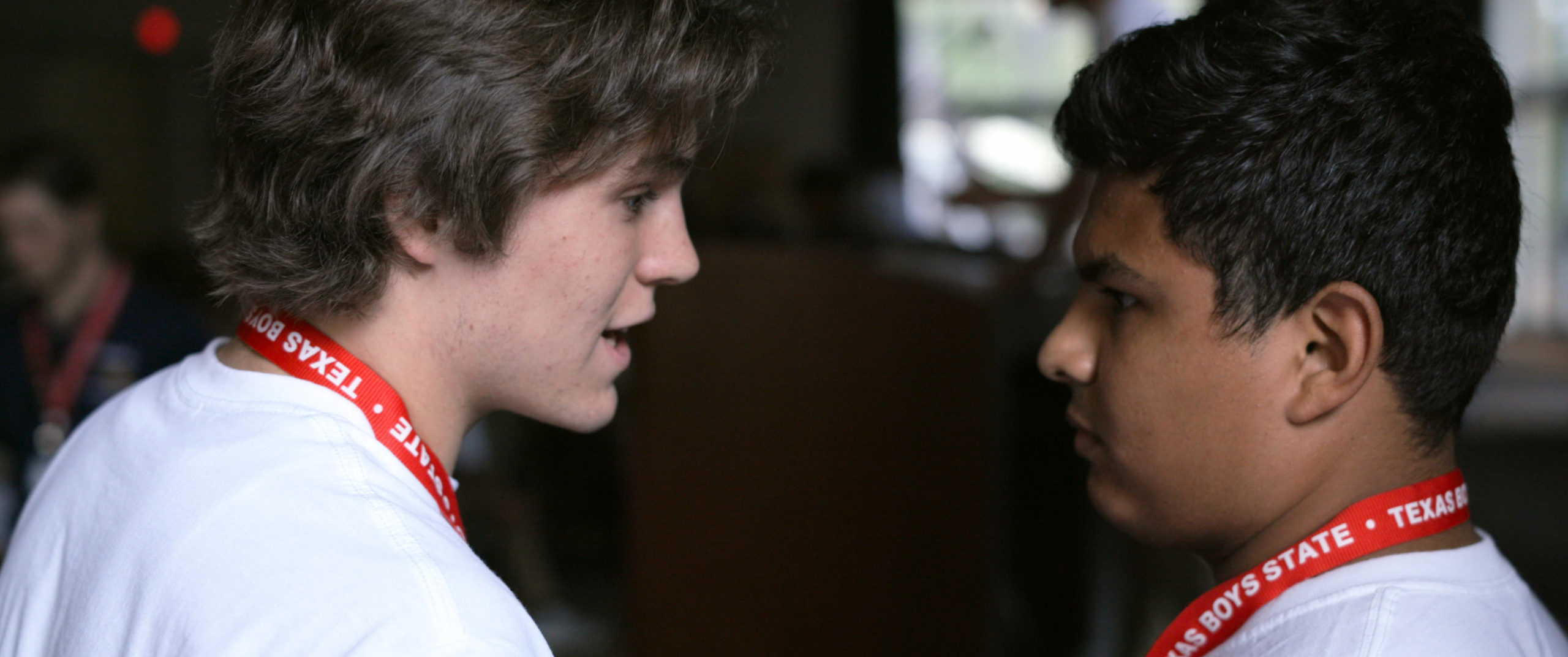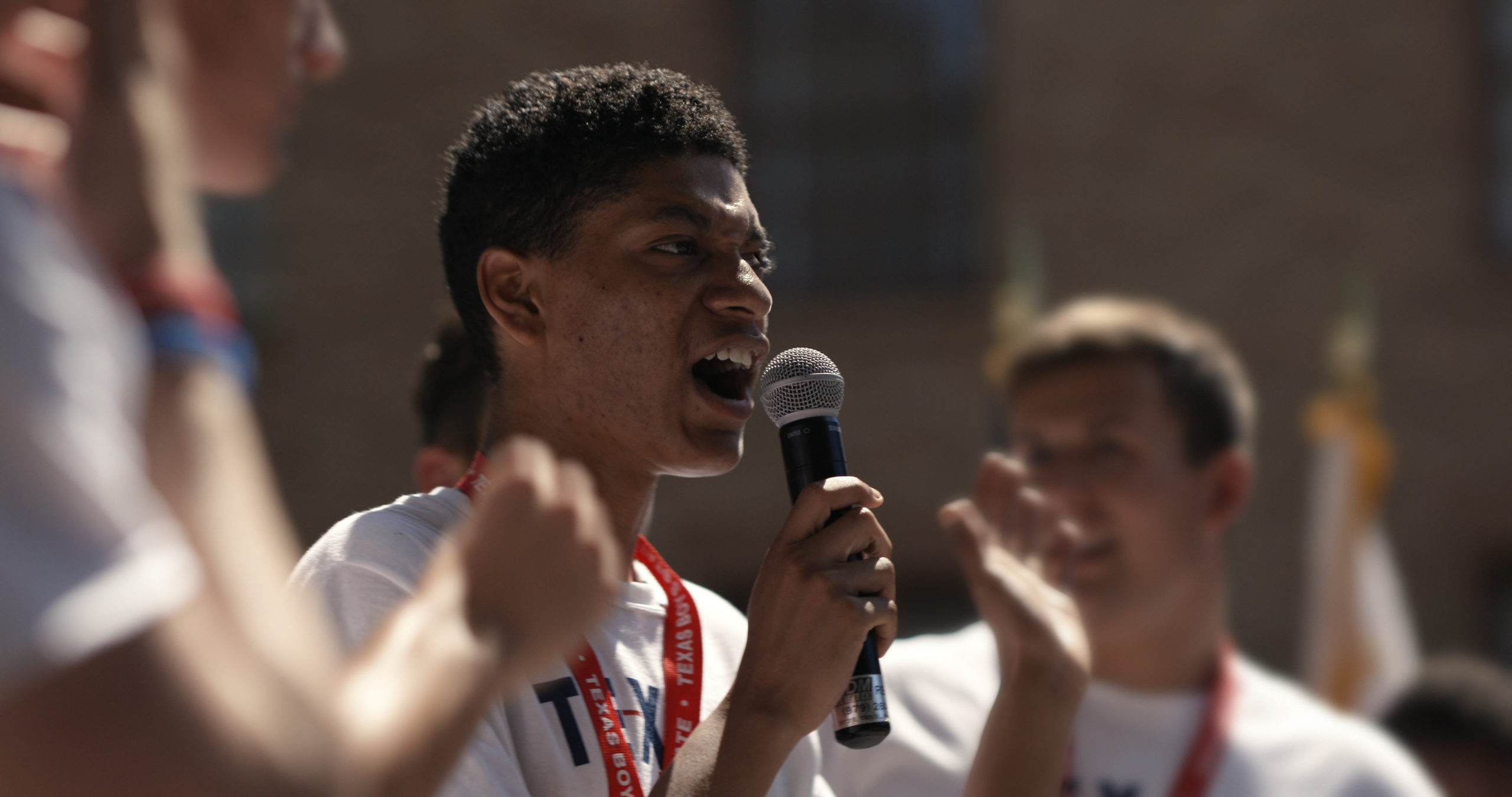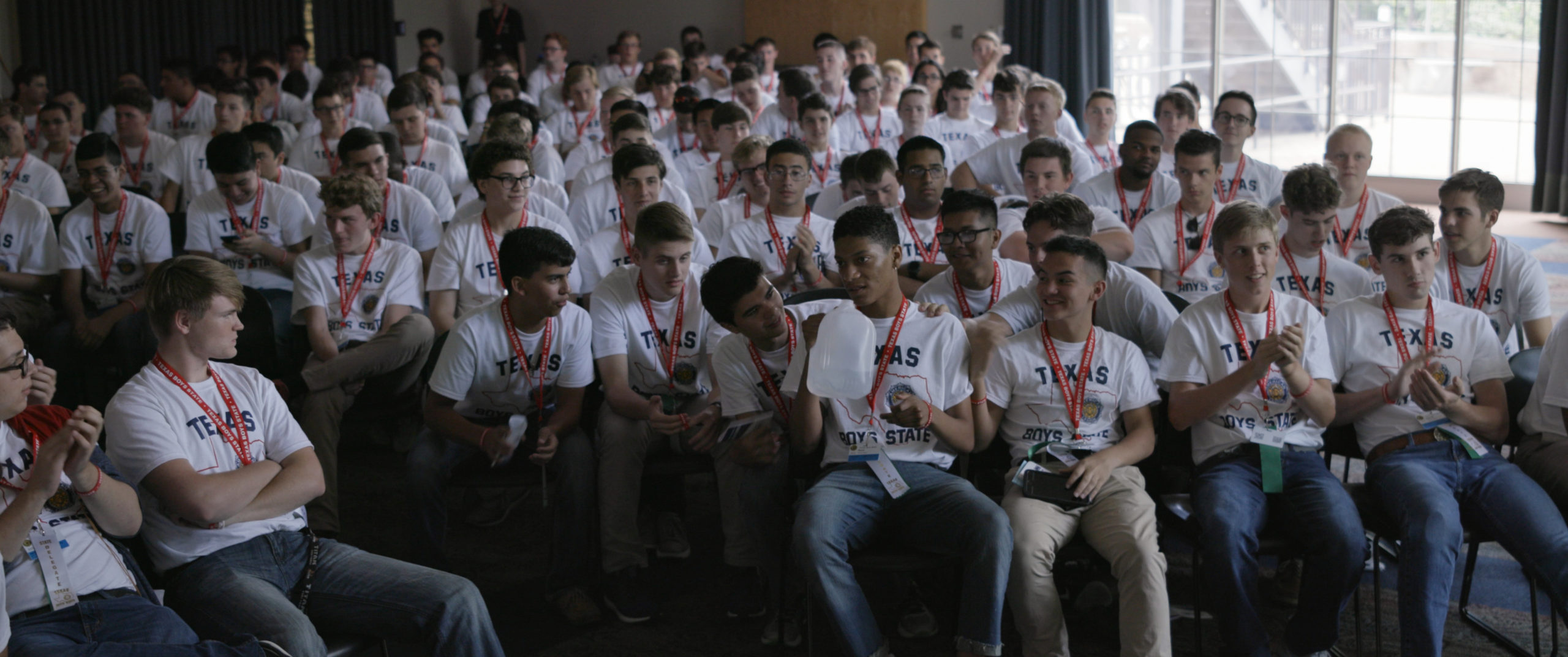Boys State is a documentary film that follows four boys attending an annual week-long mock government program in Texas which more than 1,000 boys attend each year. Following the American two-party system, they are split into two groups, the Nationalists and the Federalists. These two parties become similar to the Republican and Democrat parties. They can run for a number of positions, with governor being the top spot. Famous past Boys State participants include New Jersey Senator Cory Booker and former Vice-President Dick Cheney.
As the film starts, we see shots of teenage boys being rowdy and messing around, and it can be hard to see Boys State as a representation of The U.S. government. However, as the film progresses, these similarities become clear.
Boys State was originally released January 24th, 2020 at Sundance, where it won the U.S. Documentary Competition Grand Jury Prize. In September, filmmakers Jesse Moss and Amanda McBaine, and the film’s subjects Ben Feinstein, Steven Garza, and Robert MacDougall hosted a live Q&A to talk about the film, which was attended by college students across the country.
Moss and McBaine decided to make the film after Boys State made the news in 2017 when that year’s legislature voted for Texas to secede from the Union. The Boys State depicted in the film took place in the same state and only a year after that decision. This decision put Boys State in the mainstream news, which drew McBaine and Moss to make the documentary.
The film’s four subjects are Steven Garza, a progressive child of a Mexican immigrant; Ben Feinstein, a conservative with a love for Ronald Reagan; Robert MacDougall, a current cadet at the United States Military Academy at West Point and René Otero, the nationalist party chair with a skill for speech giving.

Otero was the only subject the directors had not found prior to filming. The other three had been interviewed and chosen before-hand based off of their appeal and ability to perform normally under camera.
While the film follows a mock election, it manages to express many realities of the upcoming 2020 election.
The boys in the film have the same drive to succeed as real politicians do. They work to get enough signatures from their peers to get on the ballot and struggle to figure out how they want to portray themselves as politicians.
“They all turned out to be as complicated, interesting, remarkable, as we hoped they would be,” said filmmaker Jesse Moss about the film’s subjects.
McBaine, the director, described Garza as an underdog who was inspiring in his ability to succeed as an outsider in a challenging environment. Garza was the last man standing from his party in the run for governor. He won the nomination of the nationalist party and was running against Eddy Proietti, the representative for the federalist party.
Even his competitor, Robert MacDougall, who was also running for governor, was impressed with Garza’s ability to gain support and connect to people.
“I thought he [Garza] did great. He spoke from the heart and the people loved it, and I love both those things. He is more qualified than I am by a solid margin,” said Macdougall in the film.
Viewers get to watch Garza, and the other subjects grow significantly in a short time frame.
Otero finds ways to power through the racism directed towards him. As one of the only Black people participating in Boys State, he is resilient and refuses to be spoken over. As party chair, Otero had been threatened with impeachment and had a racist meme page made about him by his peers. The account “Impeach_René” was shared across both parties.
“I’m gonna keep my job, if it’s the last thing I do,” said Otero in the fim.

Ben Feinstein, through watching the film, was able to see parts of himself he wasn’t proud of, and changed his beliefs and actions as a result.
“The more I’ve gotten to reflect, rewatch and examine everything, It’s been this huge opportunity to be able to improve myself as a political actor and improve my perception of others and how I want to conduct myself in a political space,” said Feinstein at the Q&A.
While Boys State provides a hopeful look of succeeding despite adversity, it also gives us a glimpse into the tough reality of current American politics. There is also an annual Girls State competition, but the filmmakers don’t address it in this project.
“The discovery of Boys State and these guys is that they could make us laugh, they could make us cry, they could make us think and that’s why it’s been a joy to share the film,” said Moss.
Boys State is as interesting as it is inspiring. Despite Garza losing the race for governor, there is a lasting hope left by the film. In one of the last scenes, Garza cries on a phone call to his mother.
“I’m proud of what I was able to do here. I’m proud of the friends I’ve made. Proud of the race that I ran.”
Ultimately, Boys State portrays a message of success over adversity and unity among people from different backgrounds.
BOYS STATE is an Apple Original Films and A24 Release. Now available to stream on Apple TV+.







